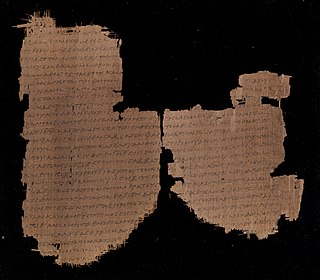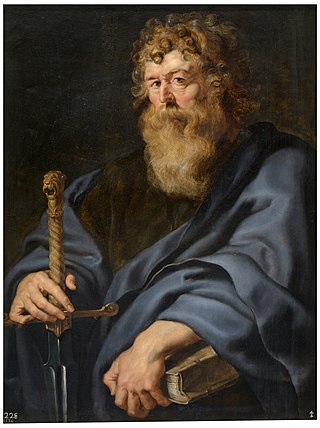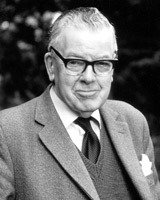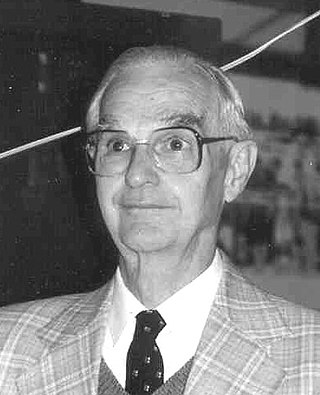Related Research Articles

The Gospel of Luke is the third of the New Testament's four canonical Gospels. It tells of the origins, birth, ministry, death, resurrection, and ascension of Jesus. Together with the Acts of the Apostles, it makes up a two-volume work which scholars call Luke–Acts, accounting for 27.5% of the New Testament. The combined work divides the history of first-century Christianity into three stages, with the gospel making up the first two of these – the life of Jesus the messiah (Christ) from his birth to the beginning of his mission in the meeting with John the Baptist, followed by his ministry with events such as the Sermon on the Plain and its Beatitudes, and his Passion, death, and resurrection.

Paul also named Saul of Tarsus, commonly known as Paul the Apostle and Saint Paul, was a Christian apostle who spread the teachings of Jesus in the first-century world. For his contributions towards the New Testament, he is generally regarded as one of the most important figures of the Apostolic Age, and he also founded several Christian communities in Asia Minor and Europe from the mid-40s to the mid-50s AD.

The Nativity or birth of JesusChrist is found in the biblical gospels of Luke and Matthew. The two accounts agree that Jesus was born in Bethlehem, in Roman-controlled Judea, that his mother, Mary, was engaged to a man named Joseph, who was descended from King David and was not his biological father, and that his birth was caused by divine intervention. Some scholars do not see the two canonical gospel Nativity stories as historically factual since they present clashing accounts and irreconcilable genealogies. The secular history of the time does not synchronize with the narratives of the birth and early childhood of Jesus in the two gospels. Some view the question of historicity as secondary, given that gospels were primarily written as theological documents rather than chronological timelines.

In Christianity, Jesus is the Son of God as chronicled in the Bible's New Testament, and in most Christian denominations he is held to be God the Son, a prosopon (Person) of the Trinity of God. Christians believe him to be the messiah, who was prophesied in the Bible's Old Testament. Through Jesus's crucifixion and resurrection, Christians believe that God offers humans salvation and eternal life, with Jesus's death atoning for all sin.

Frederick Fyvie Bruce was a Scottish evangelical scholar, author and educator who was Rylands Professor of Biblical Criticism and Exegesis at the University of Manchester from 1959 until 1978 and one of the most influential evangelical scholars of the second half of the twentieth century. When the academic community looked down upon Evangelicals, Bruce demonstrated that a scholar holding evangelical views could do worthwhile academic work. He persuaded Evangelicals that they should not turn their backs on academic methods of Bible study, even if the results might differ from traditional evangelical views. As a result, he has been called the "Dean of Evangelical Scholarship".
James Douglas Grant Dunn, also known as Jimmy Dunn, was a British New Testament scholar, who was for many years the Lightfoot Professor of Divinity in the Department of Theology at the University of Durham. He is best known for his work on the New Perspective on Paul, which is also the title of a book he published in 2007.

Richard N. Longenecker was a New Testament scholar. He held teaching positions at Wheaton College and Graduate School ; Trinity Evangelical Divinity School (1963-72); Wycliffe College ; University of St. Michael’s College ; and McMaster Divinity College. His education included B.A. and M.A. degrees from Wheaton College, and a Ph.D. from New College in the University of Edinburgh.

Leon Lamb Morris was an Australian New Testament scholar and theologian.
Richard Bevan Hays is an American New Testament scholar and George Washington Ivey Professor Emeritus of New Testament Duke Divinity School in Durham, North Carolina. He is an ordained minister in the United Methodist Church.

Oliver Michael Timothy O'Donovan is a British Anglican priest and academic, known for his work in the field of Christian ethics. He has also made contributions to political theology, both contemporary and historical. He was Regius Professor of Moral and Pastoral Theology at the University of Oxford from 1982 to 2006, and Professor of Christian Ethics and Practical Theology at the University of Edinburgh from 2006 to 2013.
Luke Timothy Johnson is an American Catholic New Testament scholar and historian of early Christianity. He is the Robert W. Woodruff Professor of New Testament and Christian Origins at Candler School of Theology and a Senior Fellow at the Center for the Study of Law and Religion at Emory University.
Graham H. Twelftree is an Australian biblical scholar who currently serves as the Academic Dean of London School of Theology in London, UK.

Christianity in the 1st century covers the formative history of Christianity from the start of the ministry of Jesus to the death of the last of the Twelve Apostles and is thus also known as the Apostolic Age. Early Christianity developed out of the eschatological ministry of Jesus. Subsequent to Jesus' death, his earliest followers formed an apocalyptic messianic Jewish sect during the late Second Temple period of the 1st century. Initially believing that Jesus' resurrection was the start of the end time, their beliefs soon changed in the expected Second Coming of Jesus and the start of God's Kingdom at a later point in time.
Tremper Longman III is an Old Testament scholar, theologian, professor and author of several books, including 2009 ECPA Christian Book Award winner Dictionary of the Old Testament: Wisdom, Poetry & Writings.
Craig S. Keener is an American Protestant theologian, Biblical scholar and professor of New Testament at Asbury Theological Seminary.

Christian sources such as the New Testament books in the Christian Bible, include detailed accounts about Jesus, but scholars differ on the historicity of specific episodes described in the biblical accounts of Jesus. The only two events subject to "almost universal assent" are that Jesus was baptized by John the Baptist and was crucified by the order of the Roman Prefect Pontius Pilate.
Murray J. Harris is professor emeritus of New Testament exegesis and theology at Trinity Evangelical Divinity School in Deerfield, Illinois. He was for a time warden of Tyndale House at Cambridge University. He gained his PhD from the University of Manchester, studying under F. F. Bruce.
Dr. Colin Kruse is a bible commentator and senior lecturer in New Testament at the Melbourne School of Theology.
Mark A. Seifrid is a scholar of the New Testament letters of Paul, currently working at Concordia Seminary in St. Louis, Missouri.
In Christianity, the title Son of God refers to the status of Jesus as the divine son of God the Father.
References
- ↑ Who's Who 2008: London, A & C Black, 2008, ISBN 978-0-7136-8555-8
- ↑ Among others he has written Is the New Testament History? (1986), The Message of 2 Corinthians (1988), Bethlehem to Patmos (1989), The Two Faces of Jesus (1990), Jesus and the Logic of History (1997), Birth of Christianity (2005) and Paul, Missionary of Jesus > British Library website accessed 15:58 GMT 21 February 2011
- ↑ Paul W. Barnett. IVP. Retrieved 31 December 2022.
- ↑ Crockford’s 1975-76 Lambeth, Church House, 1975, ISBN 0-19-200008-X
- ↑ S.R. Llewelyn (ed.), New Documents Illustrating Early Christianity, Vol 9
- ↑ Anglican Communion Directory, March 2000